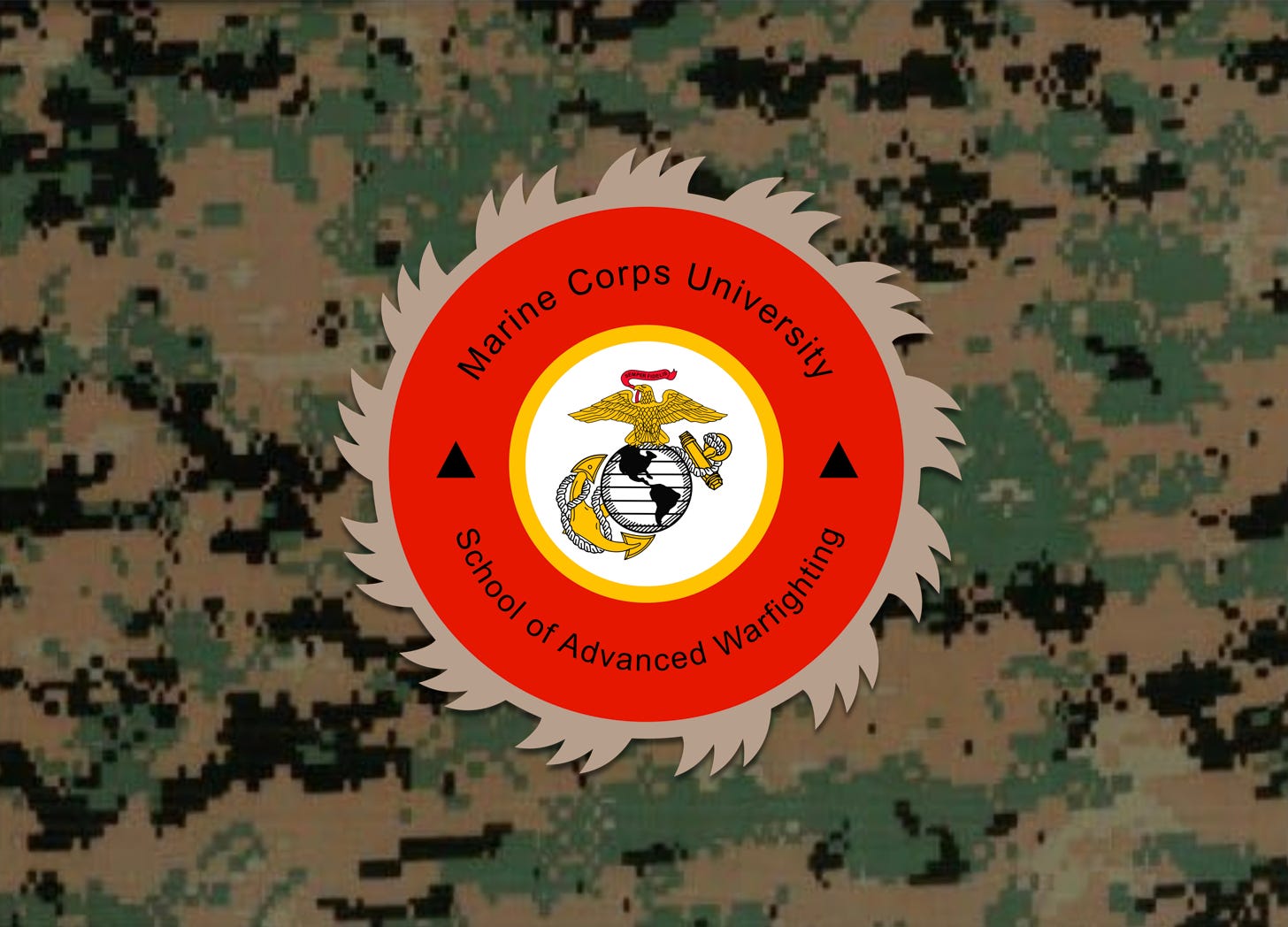How to Teach Planning ...
Without Even Trying
This post, by the reliably thought-provoking Shady Maples, got me thinking about the time when, entirely by accident, I turned a group of very clever American Marines (along with their sister-service and friendly-nation colleagues) into effective operational planners. The time was tail end of the Quantico Renaissance, the years between 1990 and 1992. The place was the brand new School of Advanced Warfighting.
In those days, the mission of SAW (as it was invariably called) was the education of combat developers. That is, the graduates were supposed to be able to do things like write doctrine, design units, manage talent, and acquire equipment. (To put things more bluntly, the purpose of SAW was to turn Quantico, which was where such things were usually done, into something other than an elephants’ graveyard for mediocre majors.)
To this end, I built a curriculum out of two activities. First, students spent three out of every four weeks reading, and discussing, scholarly works about the evolution of American military institutions. Second, they devoted every fourth week to the writing of a substantial paper about parallel developments in a European country. (Each student wrote all of his papers about a particular country, whether France, Germany, Russia, or the United Kingdom.)
I adopted this approach because I wanted students to get into the habit of thinking in terms of thirty year periods of time. After all, just about every decision made in the realm of combat development would cause consequences that would last for three decades or so. (Think, if you will, about the life cycle of a piece of equipment, the length of a full career, or the staying power of an idea expressed in a manual.)
I also wanted students to be able to write well, if only because the written word is the most powerful weapon in the arsenal of any person, military or civilian, trying to get things done within a large organization. (“Yes, Sir, I see what you want to accomplish. I’ll reduce it to writing right away.”)
Marvelous to say, the officers who had spent ten months pondering the deeds of Winfield Scott, his successors, and their European counterparts proved popular in the Pentagon. Indeed, senior operational commanders (the kind with titles that contain more letters than the Post Office) were so eager to have SAW graduates on their planning staff that few of my former students managed to do much in the way of combat development.
The most obvious explanation for this curious turn of events lies in the realm of writing. In our post-literate age, a time when command of the common tongue is an uncommon virtue, much of what purports to be staff work resembles a bowl of alphabet soup thrown against a wall. Thus, the rare memorandum that is written in clear English becomes an artifact of marvelous power. It may also be possible that graduates of SAW were able to think in terms of armies, fleets, and the fates of nations because they had kept company with institutional innovators who had wrought their reforms at the level of such things.
In the age of brass that followed the Quantico Renaissance, the powers that were in the Marine Corps did not bother to examine the great paradox of the unintended production of officers who were good at planning. Instead, they replaced all but one of the papers in the curriculum with, marvelous to say, training in the sort of formal planning processes that Shady Maples so rightly consigns to the category of self-inflicted wounds.
For More on the Subject of Military Education:
To Subscribe, Share, or Support:






Again, if war is never final why not plan on actions to lean forward on that premise
I’d like to think that teaching planning would a good idea if they also focused on the fact of after the war- that it’s never final so how do they think about mitigating it